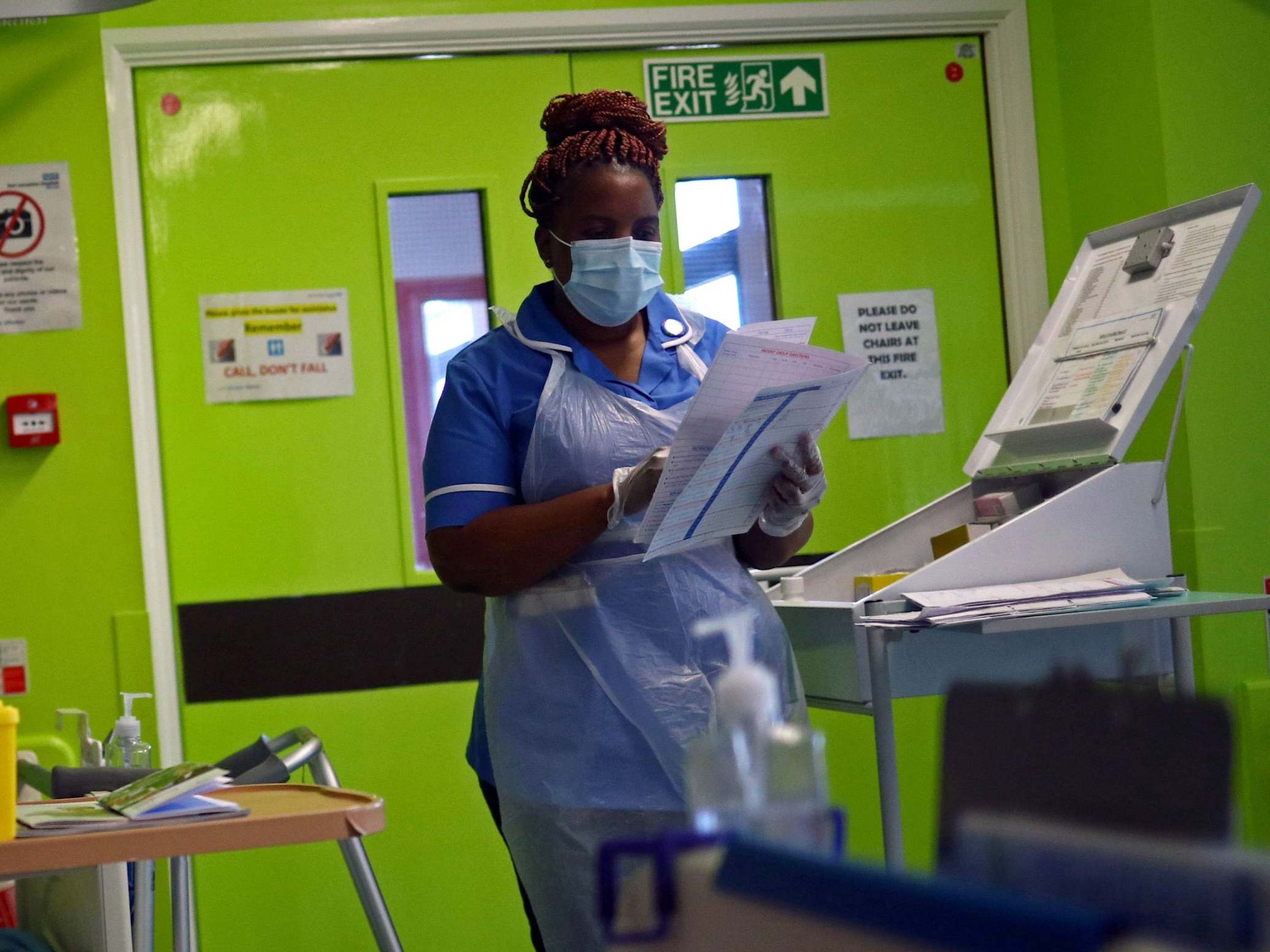Coronavirus: BAME nursing staff ‘find it harder to access PPE’ than white counterparts
‘We look forward to getting more answers from Public Health England’s investigation,’ says head of nursing union

Black, Asian and minority ethnic (BAME) nurses in the UK are more likely to have problems accessing vital personal protective equipment (PPE), a new survey shows.
Twice as many BAME members of nursing staff said there did not have enough surgical masks, disposable plastic aprons and disposable gloves than their white British counterparts, according to a survey of more than 5,000 workers by the Royal College of Nursing (RCN). About 700 of those were from a BAME background.
The nursing union said there had been some improvement in the supply of PPE since April, but that there was a “deeply worrying” disparity in kit provision between staff of different backgrounds.
More than half – 56 per cent – of staff from BAME groups said they felt pressure to care for Covid-19 patients without adequate kit, compared with only 29 per cent of white staff who felt the same.
And just 43 per cent of BAME staff working in high-risk environments like intensive and critical care units said they had enough eye and face protection equipment. This was in stark contrast to the 66 per cent of white staff able to access similar gear.
The difference was equally stark when it came to fluid-repellent gowns in high-risk hospital setting. Some 37 per cent of BAME nurses said they did not have enough to use during their shift, while only 19 per cent white staff reported the same concerns.
More than half of BAME nursing staff, 53 per cent, said they had been asked to reuse single-use PPE compared with 42 per cent of white counterparts.
There was also a gap in training for staff on the appropriate kinds of PPE to use. Two-fifths of BAME nursing staff told the RCN they had not had training, compared with just 31 per cent of white nurses.
The nursing union found a concerning gap in confidence in staff protection at work, with nearly a quarter – 24 per cent – of BAME nurses saying they had no confidence their employer doing enough to protect them from coronavirus infection. This compared with just 11 per cent of white British respondents lacking that confidence.

Dame Donna Kinnair, chief executive and general secretary of the RCN, said: “It is simply unacceptable that we are in a situation where BAME nursing staff are less protected than other nursing staff.”
She added: “These results reinforce our call for BAME nursing staff to have specific risk assessments to reflect the risks they face as a result of COVID-19. All of our nursing staff must have the protection they need, and action must be taken urgently to ensure they are all kept safe.
“We look forward to getting more answers from Public Health England’s (PHE) investigation into the disproportionate effect of Covid-19 on BAME groups.”
PHE and NHS England are conducting an investigation into the disproportionality of Covid-19 deaths among BAME health and social care workers – with PPE problems part of the scope of the inquiry.
The Royal College of Nursing called on the NHS and all other health and social care employers across the UK to update their risk assessment processes to explicitly include ethnicity in their vulnerable and at-risk groups.
Dr Habib Naqvi, Deputy Director, NHS workforce race equality standard said: “Ahead of findings of the Public Health England investigation into the impact of Covid-19 on people from BAME backgrounds, hospitals have been asked to take the precautionary measures including risk-assessing staff at potentially greater risk, and if any colleague is concerned, they should raise this with their trust and be listened to.”
The Independent has contacted PHE and the Department of Health for comment.
Join our commenting forum
Join thought-provoking conversations, follow other Independent readers and see their replies
Comments